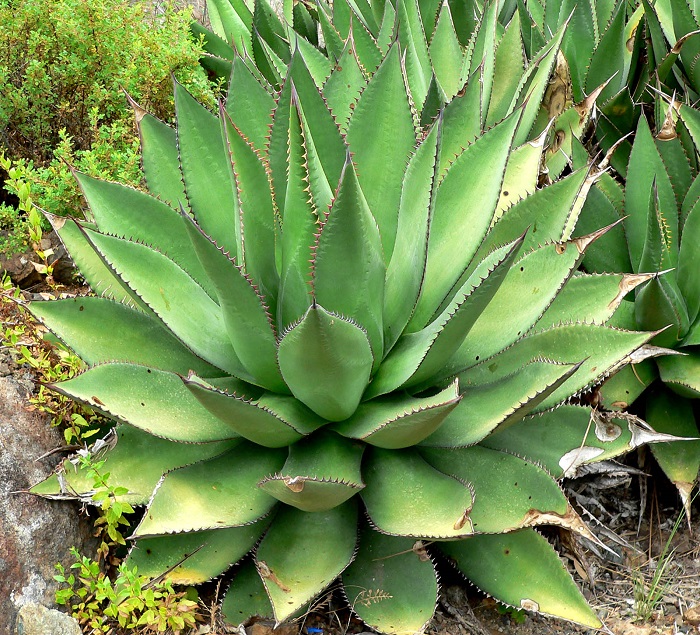Perhaps the most unlikely of partners — an automaker and tequila producer — have found a way to work together for the betterment of all.
U.S. auto company Ford is working with Mexico’s tequila maker, Jose Cuervo, to explore the possibility of transforming fibers from agave (the plant used to make tequila) to create a new bioplastic which, ultimately, could replace fiberglass and caulk.
Should the material prove scalable, it could be used in technology components such as wire harnessing and air conditioning units; it could even one day be used to produce storage bins.

Researchers involved in the early stages of the product are excited by the potential this solution might one day provide in terms of weight reduction as well as reduced energy consumption in automobiles. The material will also reduce pollution by using fewer petrochemicals.
Debbie Mielewski, the senior technical leader at Ford's sustainability research department, has worked on finding renewable materials for automobile components over the past two-plus decades. Among her accomplishments is the design of a soy-based foam which was used to create car seats in the 2008 Ford Mustang. The success of this solution led to today, wherein all seats of North American Ford vehicles use biomaterials. She is excited by the possibilities that the agave plant presents for future cars.
“The average vehicle contains about 400 pounds (180 kilos) of plastic and our goal is to replace as much as possible with sustainable biomaterials, further reducing our use of petroleum-based plastic,” Mielewski said.
Worth noting is Ford’s policy of using materials sourced from the areas in which they’re manufactured. For example, in Asia, the company uses kenaf, a tropical plant. In the US, it’s cotton fiber. Mielewski came up with the idea of using agave when reviewing the location of the Ford factory in Hermosillo, which is located in the northwestern state of Sonora. The first tequila company that came to mind was Jose Cuervo.
“I think it will be a revenue stream for them and agave farmers,” she said.
Worth noting is how the plant will be used. To make tequila, the middle of the agave is harvested, roasted, and grounded, before its juices are squeezed out for distillation. Approximately 700,000 tons of agave is used every year to make the popular Mexican spirit, with about 40% of the plant’s husk being discarded.
Ana Laborde, founder of Biosolutions, a Mexican company that makes bioplastics with agave, told the Associated Foreign Press that “more and more automobile companies are interested in incorporating natural fibers into their auto parts.”
Laborde added that making materials for cars would be a commitment to the environment as opposed to making money, saying there’s no real profit in it just yet because there’s no large market for it at the moment.
“By reducing the weight of a car, it uses less fuel and it pollutes less,” Laborde said.
Via Phys.org
Advertisement
Learn more about Electronic Products Magazine





